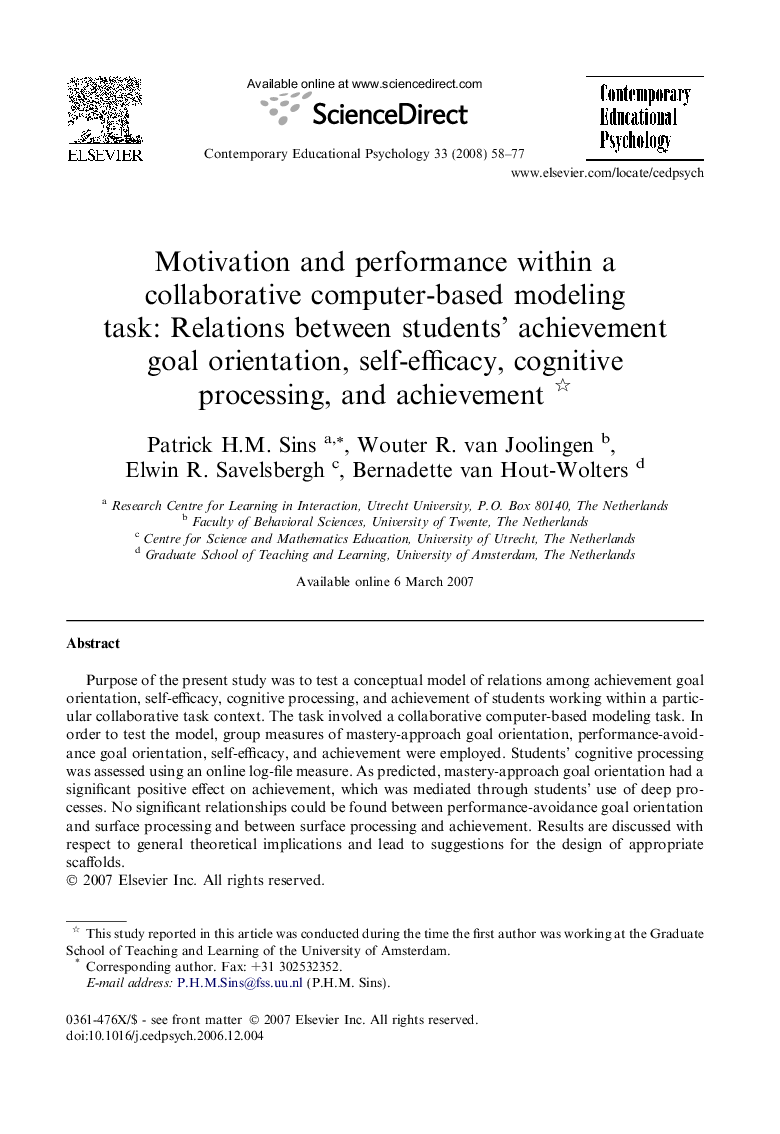| Article ID | Journal | Published Year | Pages | File Type |
|---|---|---|---|---|
| 352896 | Contemporary Educational Psychology | 2008 | 20 Pages |
Purpose of the present study was to test a conceptual model of relations among achievement goal orientation, self-efficacy, cognitive processing, and achievement of students working within a particular collaborative task context. The task involved a collaborative computer-based modeling task. In order to test the model, group measures of mastery-approach goal orientation, performance-avoidance goal orientation, self-efficacy, and achievement were employed. Students’ cognitive processing was assessed using an online log-file measure. As predicted, mastery-approach goal orientation had a significant positive effect on achievement, which was mediated through students’ use of deep processes. No significant relationships could be found between performance-avoidance goal orientation and surface processing and between surface processing and achievement. Results are discussed with respect to general theoretical implications and lead to suggestions for the design of appropriate scaffolds.
